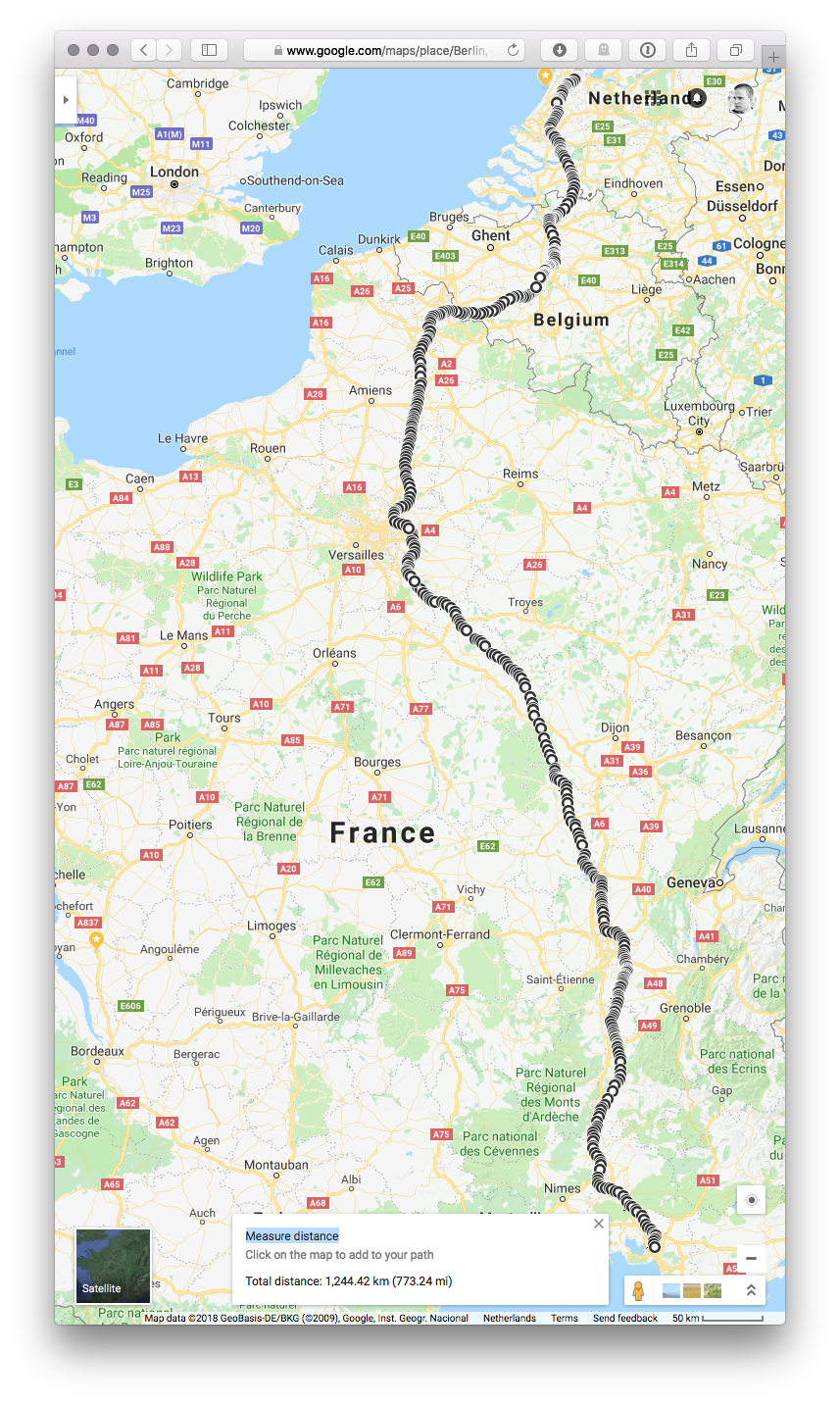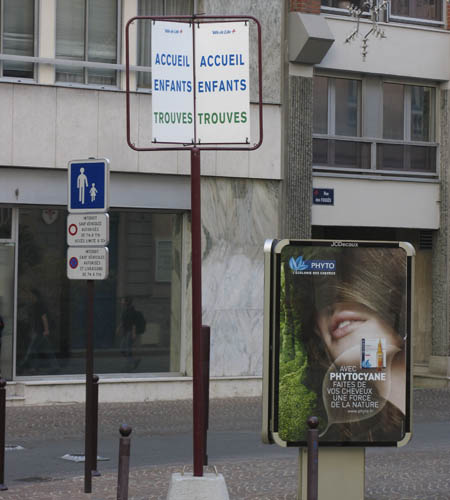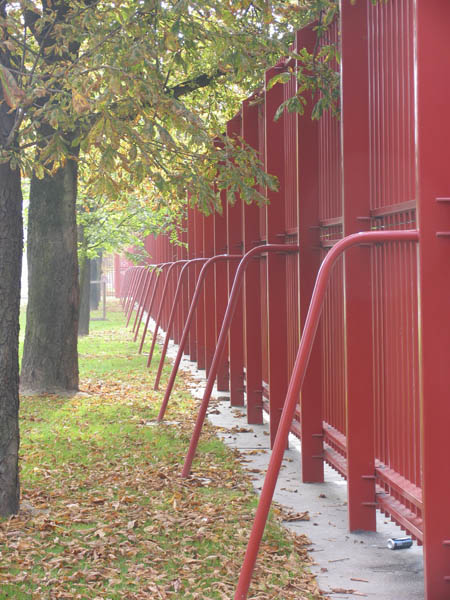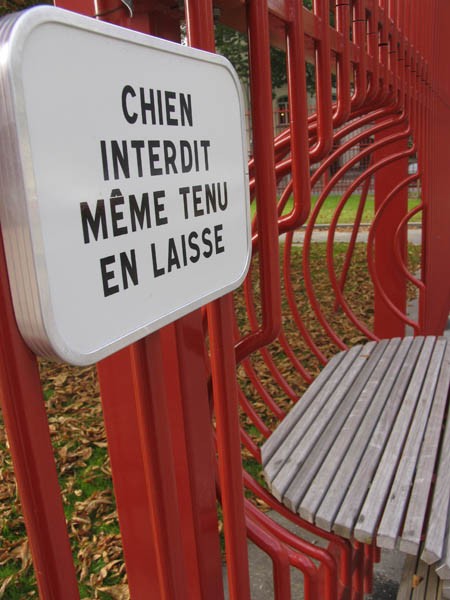Twice as fast = twice as nice
So today the dutch railways (NS) ran a one-time Amsterdam Berlin intercity service that was 27 minutes faster than the usual 6 hour 30 minutes Amsterdam Berlin intercity service. They achieved this by omitting all stops between Amsterdam and the German border (Hilversum, Amsersfoort, Apeldoorn, Deventer, Amelo and Henglo). According to the NS it should be possible to further reduce travel time to four hours by aquiring engines that are capable of running 200 km/h on the Dutch and the German railwys (right now there is a change of engine in Bad Bentheim that takes about 15 minutes) and by skipping most stops on the German side (Bad Bentheim, Rheine, Bad Oeynhausen, Minden, Wolfsburg, Stendal and Berlin Spandau). The main obstacle against this badly needed upgrade of the Amsterdam Service? According to the Volkskrant all these little places insist on having the train stop in their stations.
Still the NS seems to be fairly determined to upgrade the line and bring the travel time down to four hours1, which would make it roughly competetive with direct flights between Amsterdam and Berlin. Four hours between Amsterdam and Berlin would mean an average speed of 160 km/h which is nice compared to the current average of 98 km/h but it is a far cry from the 200 km/h reuired to qualify as a high speed rail service. By comparison i have recently had the pleasure to travel on the so called Zon Thlays (a dedicated summer weekend only service that connects Amsterdam with the south of France) which runs the 1244 km from Amsterdam to Aix en Provence in 6 hours 47 minutes (an average speed of 187 km/h including a 15 minute crew rest stop at Paris CDG Airport, required by labour regulations). This is nearly twice as fast and makes the 6 and a half our drudgery of the current Amsterdam Berlin service even more unbearable. It brings Marseille within 7 hours of Amsterdam which feels quite amazing in more than one way (both of them being old port cities on opposite sides of the continental European land mass that culturally feel much further apart that a 7 hour train ride).
Now most of the service runs on dedicated high speed lines (with the notable exception of the bit between Antwerp and Brussels which the Belginas refuse to upgrade, in their own petty version of the i-want-the-train-to-slow-down-and-call in-my-little-village described above) and it does not make any sheduled stops between Brussels and Valence, bypassing Paris to the east (see routemap below). The trip feels like a triumph of infrastructure over time and it illustrates that if we ever want to get Euroepans of their addiction to low cost flights we will need to substantially invest into better high speed rail infrastructure.
There is no good reason why people should be able to fly across the continet, destroying the climate in pursuit of the next city trip if we had infrastuctire linking major cities that would allow travelling 1200 km or so within 6 hours (think breakfast in Amsterdam, dinner in Marseille). Now such infrastructure does not come cheap2, but given the climate destroying effects of our addiction to cheap short haul air travel, there are little alternatives.
The most logical source of the required investments would be a suracharge on intra EU airline tickets. A modest €20 per ticket would bring in €12,5 billion per year (based on the 626 million passengers of national and intra EU28 passengers identified in the 2016 air transport statistics). To make the point that people should take the train insteard of the plane it this surcharge should be inreased to €100 per ticket for routes that compete with trains services that take 4 hours or less such as Amsterdam-Paris (1,26M passengers in 2017 = €101M extra ), Paris-London (1,07M passengers in 2017 = €86M extra) and many others. Over time such surcharges could result in substantial funds that can be invested into building a better high speed train infrastructure (think Japan) and in the short run they would make train operators on existing high speed connections much more competetive.
Given the political clout that the airline business has (they have succesfully resited the idea of taxing jetfuel for decades) such a measure would require a lot of political will to enact, but given the untenable trajectory that we are on when it comes to airtravel, there may be little other choices. The only other alternative would be for people to actually travel less. While undoubtably better, it is quite a hard sell on generations raised on cheap jet-fuel and the idea that multiple city trips per year are a basic human right.

Route of the direct Thalys service from Amsterdam to Aix en Provence
-
Which is probably an unrealistic excpection. This 2018 study by engeneering firm Royal HaskoningDSV (commissioned by Natuur en Milieufederatie Noord-Holland) comes to the conclusion that without upgrading the track the measures described above would result in a retuction of travel time of 46 minutes only (page 32). This would mean five hours and 38 minutes total travel time which is not much better than the current situation. The same study calculates that upgrading the route to proper high speed infrastructue would reduce total travel time time to 3 hours and 4 minutes (page 36, note that this tiem includes transfer to and from the train station) ↩︎
-
The above-quoted Royal Haskoning study claculates the cost of buliding a HSL network that connects Amsterdam with most mayor metropolitan centers within a radius of 750km to be €78 billion. Such a network would consist of 3310 km of new HSL infrastructure (which, of course would be only one part of a Europe-wide HSL network). ↩︎








